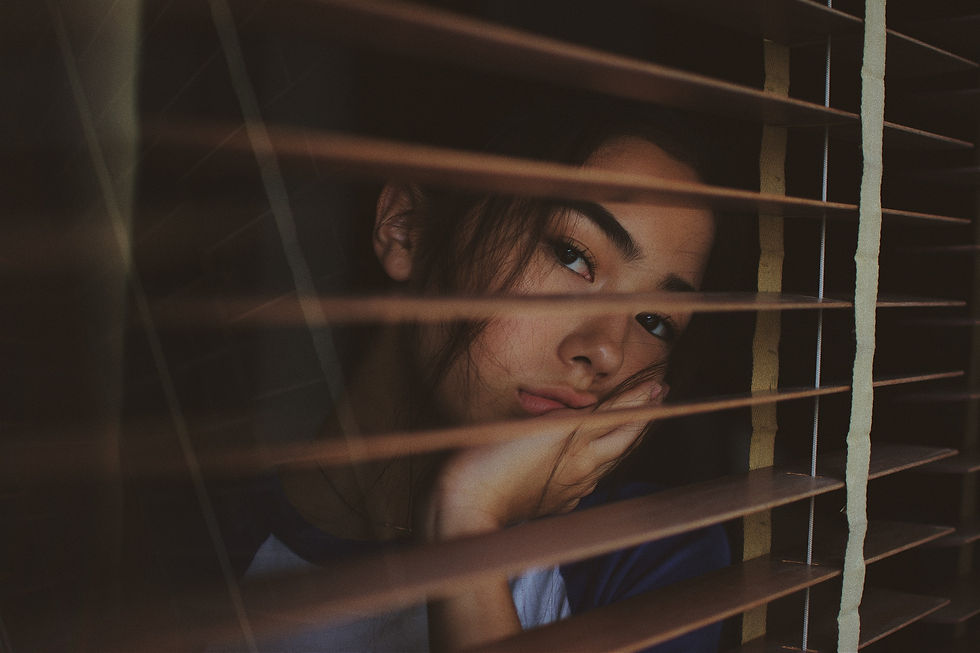Spring is Here! Why are we all still so SAD!?
- rkymtnmom
- Apr 16, 2024
- 4 min read
Updated: Apr 30, 2024

One of the side effects of COVID was depression. We have seen increases in depression since the lockdown started. Though introverts may be enjoying their solitude, I know extroverts like me are climbing the walls!
With over 11 million Americans affected with depression every year, it comes as no surprise that this disorder is the focus of considerable research. I wrote about SAD in the beginning of the year, but this is not that. This is also not severe depression. Even though the COVID nonsense is pretty much over, (until it serves the government’s purposes to resurrect it again), what many are struggling with right now is situational depression due to the fact that life in these United States is becoming more and more unsettled. Violence and inflation are at all-time highs while people seem more and more unhappy. Isolation is never good, and we need to be out in the beautiful sunshine during this stressful time.
Foods greatly influence the brain’s behavior. It is believed that a poor diet, especially one focused on sugar, artificial sweeteners, artificial preservatives and “junk food” is a common cause of some types of depression. I know, I know, I preach about this every month, but it is so critical for our well-being. And a healthy diet can relieve so many of the maladies we suffer from.
Neurotransmitters, which regulate behavior, are controlled by what we eat and are closely linked to mood. The neurotransmitters, dopamine, serotonin, and norepinephrine are most commonly linked with mood. The amino acid tryptophan increases the amount of serotonin, which reduces tension. High protein foods tend to promote the production of dopamine and norepinephrine, which promote alertness.
If you find yourself going through a bout of depression, the following nutrients may help:
L-Tyrosine
Zinc
Vitamin B complex
Vitamin C
Folic Acid
In the food category, make sure you are eating plenty of Complex carbohydrates and raw fruits and vegetables. Avoid alcohol, artificial sweeteners, caffeine and all processed foods as well as foods high in saturated fats.
My favorite herbs for situational depression are St. John’s Wort, Lemon balm, Oats and Kava Kava.
Additional Tips:
Do not take tyrosine supplements if you are taking an MAO inhibitor
Selenium is also an excellent supplement to help elevate mood and decrease anxiety.
Heredity plays a part in up to 50% of the reported cases of depression
Omega 3 Oils have shown some significant results in subjects with depression
Almost 19 million Americans are thought to suffer from depressive disorders. Not to mention only 23 percent of individuals with clinical depression seek treatment, only 10 percent of which receive adequate care. However, researchers may have discovered a new "drug" for depression most anyone can take advantage of and utilize: EXERCISE!!
In a study, which involved 80 adults aged 20 to 45 years who were diagnosed with mild to moderate depression, researchers looked at exercise alone to treat the condition and found:
Depressive symptoms were cut almost in half in those individuals who participated in 30-minute aerobic exercise sessions, three to five times a week after 12 weeks. Those who exercised with low-intensity for three and five days a week showed a 30 percent reduction in symptoms and participants who did stretching flexibility exercises 15 to 20 minutes three days a week averaged a 29 percent decline. Pick your poison, but the bottom line is: get out there and MOVE!
When using exercise as a drug, it is important to set a goal of 60 to 90 minutes per day, every day. Obviously, depending on your current condition, you may need to work slowly up to this level. My experience is that weight-bearing exercises, such as walking, jogging, running, Nordic Track and Health Rider are better than cycling and swimming.
If you have access to a health club, my favorite piece of equipment there is the elliptical machine.
However, one of the largest obstacles faced by people who haven't exercised in some time is how to get started. Just the thought of starting an exercise program can be intimidating. Whenever clients ask me what kind of activity is best, my answer is always the same:
Walking is a wonderful way to get started. It is very low impact, so it is easy on the joints.
In fact, most people find it is simple and enjoyable to fit a walk into their day. It is also one of the most cost effective ways to get exercise, as it does not require much training and the only equipment needed is a good pair of walking shoes. You can walk just about anywhere, and you can do it anytime.
Regardless of your starting level, the more vigorous your walking pace, the more dramatic the conditioning effects will be. When walking for exercise you should walk at a steady pace that is fast enough to cause your heart rate to rise.
The practical problem with using exercise in depression, however, is that the desire to pursue any activity, let alone exercise, is not very high. The converse though also needs to be considered:
Just because one exercises regularly that does not mean you cannot become depressed. Exercise makes it easier to treat depression, but it certainly does not cure it in everyone.
As a final word!!
Never stop taking any prescription drugs you are currently using without discussing it with your doctor and alternative practitioner. If you are suffering from severe or clinical depression, PLEASE seek medical assistance!
If your doctor won’t assist you in finding more natural ways to deal with your depression, FIND ANOTHER DOCTOR!!
Remember—They work for YOU!
Let’s Get Better!




Comments